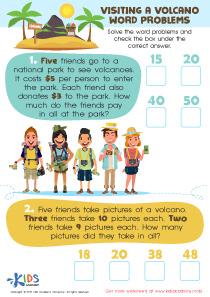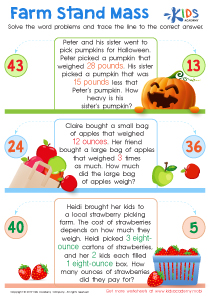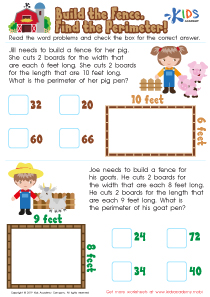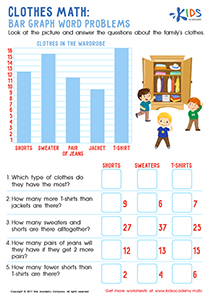Number Recognition Normal Addition and Subtraction Word Problems Worksheets for Ages 8-9
5 filtered results
-
From - To
Enhance your child’s mathematical skills with our engaging Number Recognition Normal Addition and Subtraction Word Problems Worksheets, specifically designed for ages 8-9. These worksheets offer a fun and interactive way to develop number recognition while solving real-world word problems involving addition and subtraction. Each worksheet is crafted to challenge young learners, helping them apply their mathematical knowledge in practical scenarios. Perfect for classroom use or at-home practice, our resources aim to boost confidence and proficiency in math. Encourage your child's critical thinking and problem-solving skills with these enjoyable exercises that make learning numbers an adventure!
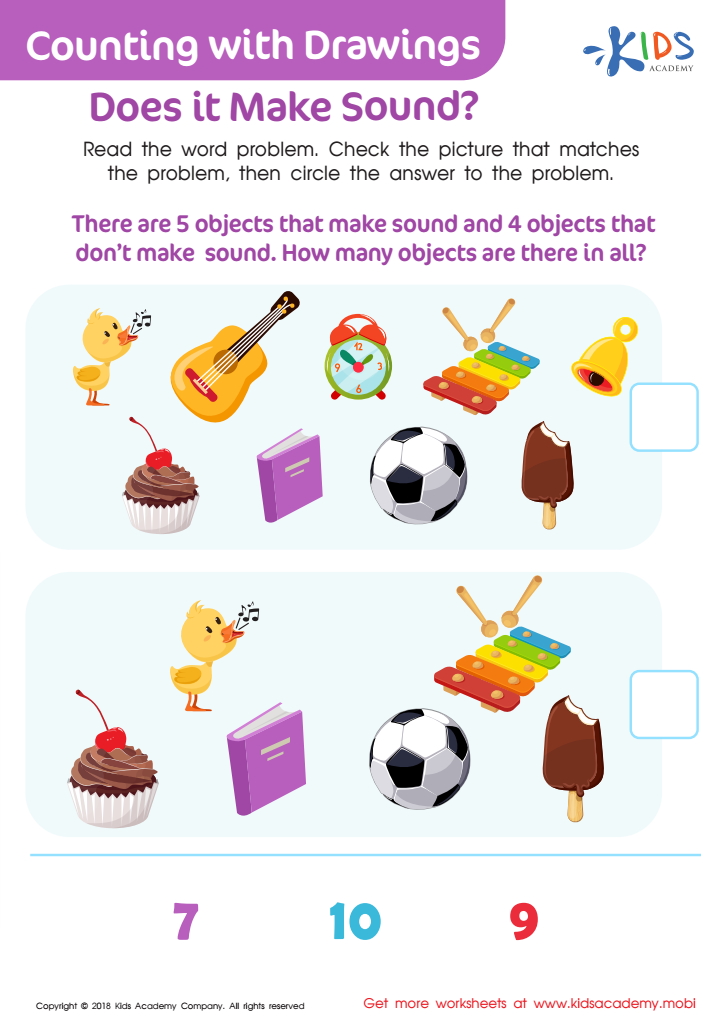

Counting With Drawings. Does It Make Sound? Worksheet
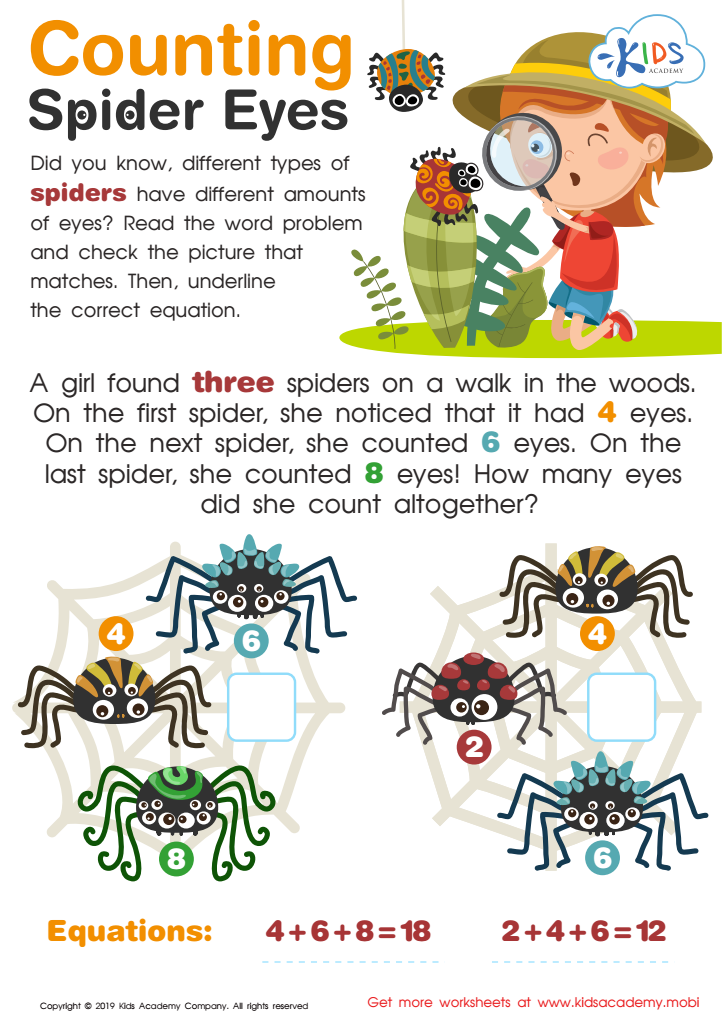

Counting Spider Eyes Worksheet
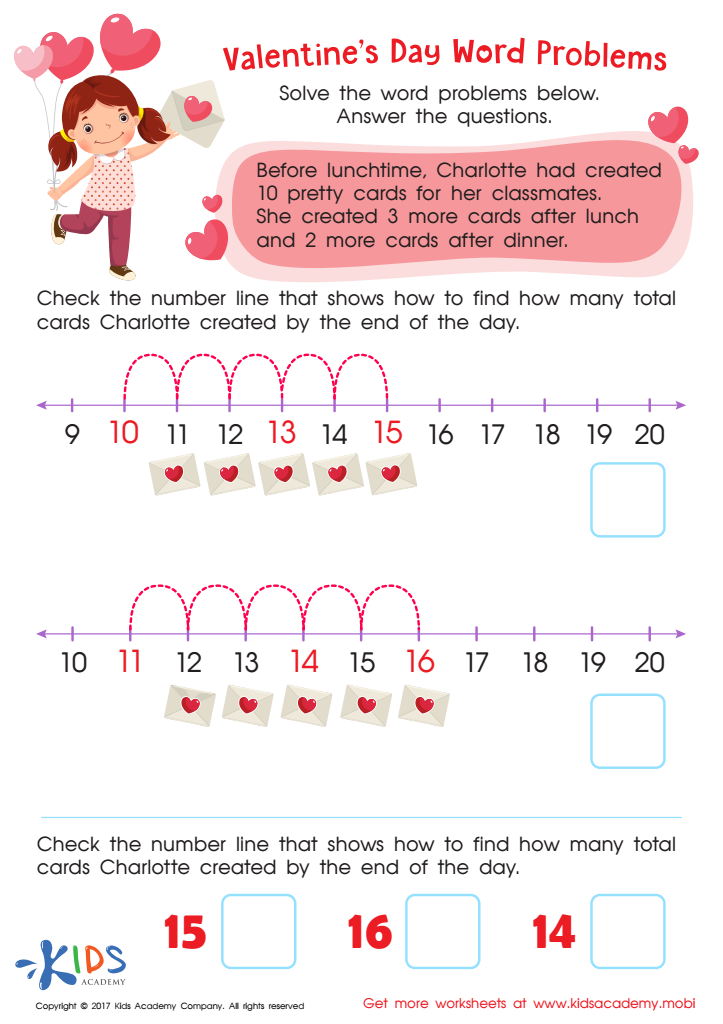

Valentines Day Word Problem Worksheet
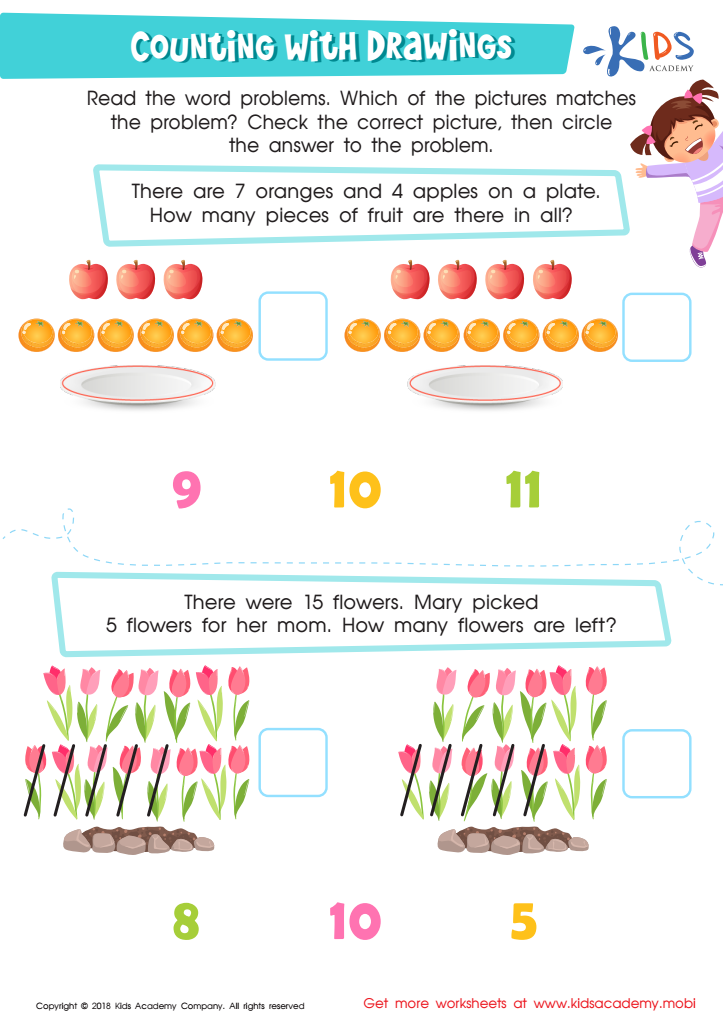

Counting with Drawings: Fruits & Chocolates Worksheet
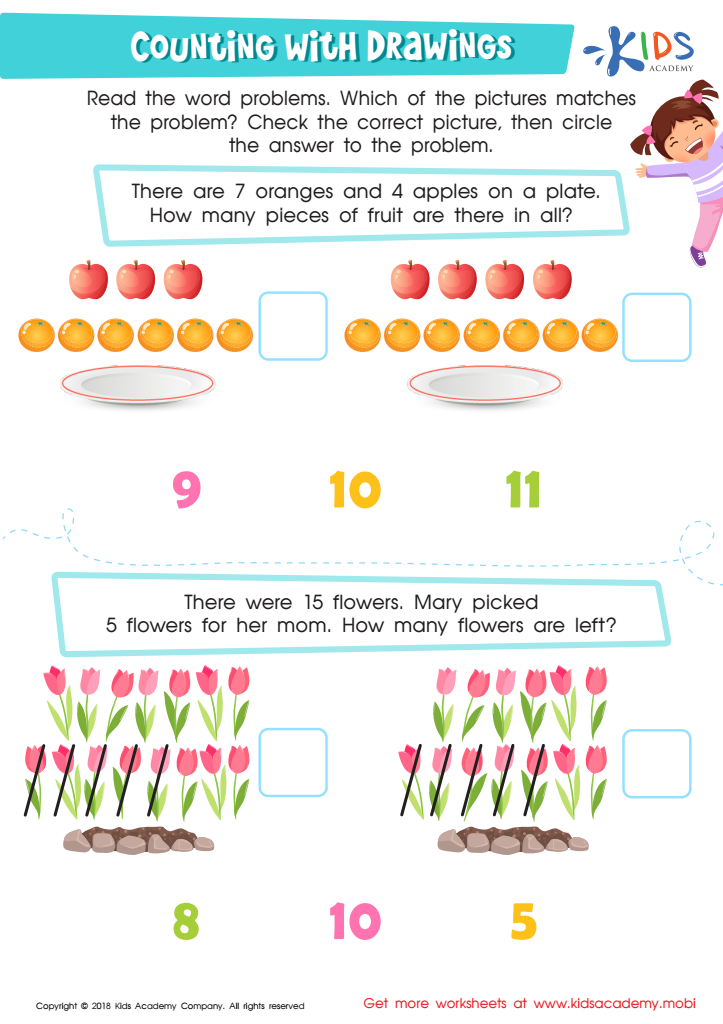

Counting with Drawings:Fruits & Flowers Worksheet
Number recognition and mastery of basic addition and subtraction word problems are foundational skills for children aged 8-9, setting the stage for future mathematical understanding and academic success. At this stage, children begin to apply their numbers in real-life contexts, developing critical problem-solving and analytical skills.
When children can recognize numbers and comprehend word problems, they are not just rote-learning but engaging with mathematics in a meaningful way. This cognitive ability fosters independence and confidence in their mathematical pursuits. Parents and teachers play a crucial role in this process by providing support and encouraging practice in incremental ways to maintain engagement.
Moreover, number recognition and the ability to solve simple word problems help children develop reasoning skills, enabling them to dissect information critically, evaluate solutions, and justify their reasoning. It builds the groundwork for more complex concepts like multiplication and division, as well as algebraic thinking later on.
Understanding the importance of these skills ensures that parents and teachers prioritize focused activities and resources, tailored to support each child's unique learning journey. By fostering a strong foundation in mathematics, adults significantly enhance children's long-term academic performance and instill a love for learning that extends beyond the classroom.
 Assign to My Students
Assign to My Students








